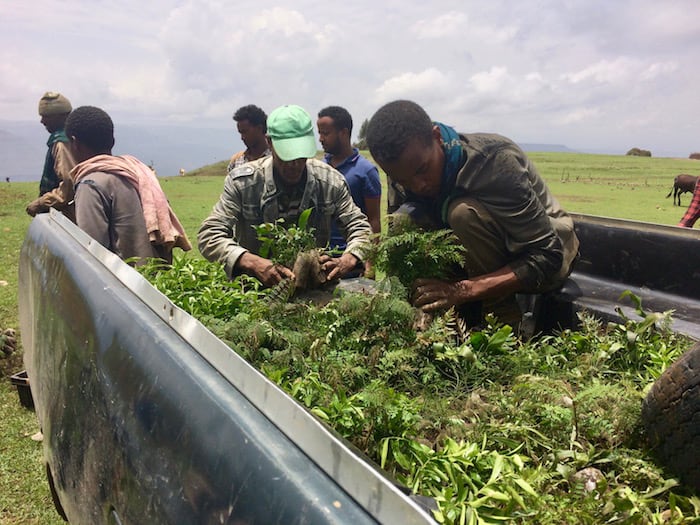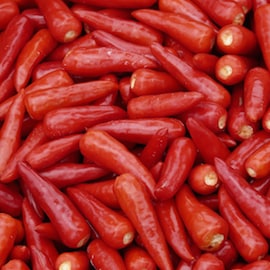Cash, Trees, Honey and Bees: Enticing Ethiopia’s Farmers Toward Eco-Stewardship
Managing the economic interests of farmers and the environment is never an easy balance, regardless of where you are in the world. But perhaps nowhere is finding that equilibrium more difficult than Ethiopia. The UN Food and Agriculture Organization notes that about 12 million smallholder farming households account for an estimated 95 percent of agricultural production and 85 percent of all employment in the East African country, which has a total population of more than 100 million.
As a Global Impact intern at the William Davidson Institute (WDI), I spent the summer working with an Ethiopian nonprofit organization. ADHENO (which translates to Integrated Rural Development Association) implements environmental restoration and economic empowerment programs in the North Shewa region. (Note: WDI is the parent organization of NextBillion). ADHENO’s work includes training for smallholder farmers on environmentally sustainable management practices such as terracing, use of improved seeds, water run off mitigation and intercropping. Much of ADHENO’s environmental restoration work is aimed at reducing the rate of erosion. Loss of soil matter and nutrients due to heavy rains and steep slopes in the region is a major concern for farmers. Another key program that ADHENO operates is called tree gudifecha. Gudifecha, meaning adoption in Amharic, is an afforestation program where farmers are paid to adopt and care for trees.
These Ethiopian farmers are not exempt from the underlying conflict that challenges most sustainability efforts, balancing the well-being of the environment with economic interests. The farmers are increasingly turning to chemical pesticides and herbicides to maintain crop yields on their increasingly degraded soils. This reliance on synthetic additives only digs these farmers into a bleaker situation as money is spent on the herbicides, which further degrade the soil. Additionally, these chemical additives have another unintended consequence that further jeopardizes the ecosystem as well as crop yields, killing the bees that are needed to pollinate the crops. In Ethiopia, use of herbicides as well as loss of habitat are causing a reduction in the local pollinator population, not unlike the global trend of pollinator decline that is threatening food security around the world. Fewer bees mean decreased crop productivity with yields cut by 12 percent to 36 percent for various crops, according to an FAO report in 2006.
Although ADHENO discourages the use of chemical herbicides, the organization has put forth an effort to restore the pollinator population by appealing to economic incentives. Indigenous species such as acacia and cordia trees are prime pollinator habitat, but provide little utility in terms of a return for a farmer. Alternatively, much of the rural populace can turn a profit from growing eucalyptus trees, which are harvested for use in construction. Although valuable, the eucalyptus tree is native to Australia and therefore does not support native pollinators. As part of ADHENO’s tree adoption program, farmers are paid a small amount of money to plant and care for trees. Of course, eucalyptus is the most desired tree for planting, but for every eucalyptus seedling that ADHENO provides, the farmers must also care for an indigenous tree to serve as bee forage. Through this strategy over 1 million trees have been adopted since the program’s inception in 2008.

An ADHENO tree nursery
In addition to restoring pollinator habitat, ADHENO also encourages the adoption of bee hives as both a way to bolster the pollinator population and create an additional source of income for farmers. Through outside funding sources, ADHENO helped establish a honey cooperative. Initial funds supported the construction of a honey processing plant, covered registration fees and provided for training on how to safely harvest, process and package honey. Since the initial donation of startup funds, the co-op has been self-sustaining and functions like any other cooperative. The farmers sell their honey to the co-op, and the co-op sells the honey at a fixed price. The farmers then receive the profits from their honey sales, which are divided proportionally among the members based on how much honey they contributed. This organization provides a platform for the farmers to profit in a more organized and sustainable way.
The co-op also allows the farmers to package their product and access a wider market than they would otherwise be able to. A downside to this business strategy is that since the co-op sells honey at a fixed price, the profits received by the farmers are not responsive to fluctuations in the market price of honey. For this reason, the co-op forbids private sales for its members, in other words, to be a member of the co-op, farmers have to agree to sell all of their honey to the co-op, even if the market price is higher than the co-op’s fixed price. On the other hand this model guarantees some income for the farmers even if the market price for honey is below the fixed price.
It is also a goal of the co-op to encourage farmers to take up beekeeping. Senior co-op members conduct trainings with new and prospective members on keeping bees and harvesting honey. The co-op currently has more than 400 members.
My work with ADHENO is conducting an impact evaluation to determine what effect ADHENO’s programs, including beekeeping, farmer training and tree plantings, are having on the livelihoods of rural farmers. Along with other students from the University of Michigan’s School for Environment and Sustainability, we are evaluating both the ecological and economic impact of these programs. While our analysis of the data collected this summer is ongoing and we hope to have a final report of the results by the end of the year, we do know that ADHENO has certainly demonstrated innovative ways to advance the needs of farmers and the environment.
Meanwhile, ADHENO is planning to expand its programs to several additional rural communities in the North Shewa region and hope to use our evaluation to guide its growth for maximum impact.
Julia Entwistle is a graduate student at the University of Michigan’s School for Environment and Sustainability.
Post images by Julia Entwistle. Homepage image by Tom Woodward via Flickr.
- Categories
- Agriculture




